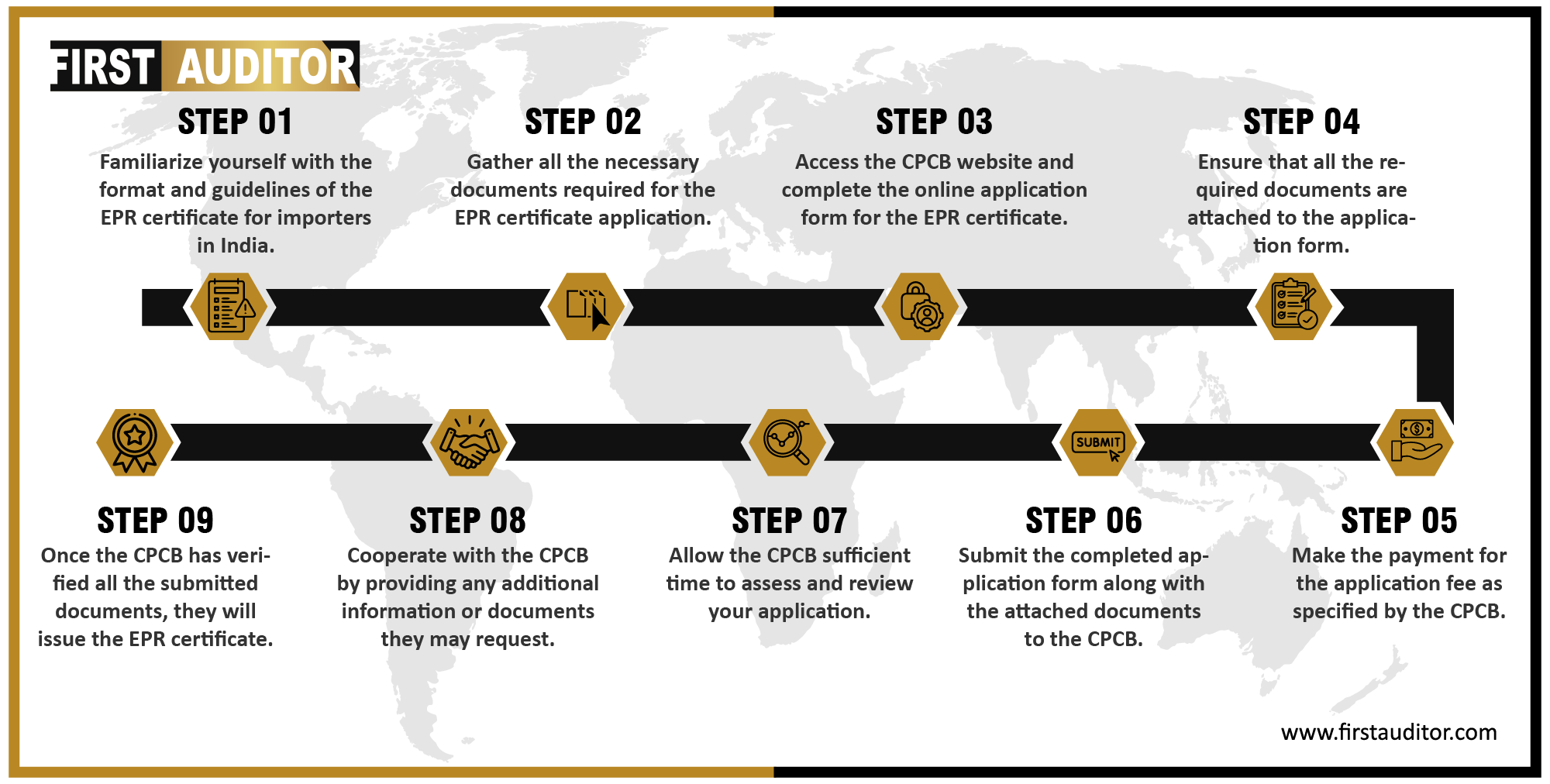The Extended Producer Responsibility (EPR) Certificate is a crucial requirement for importers to comply with environmental regulations. It demonstrates a commitment to handling the environmental impact of their products from creation to disposal. Importers must adhere to specific guidelines, provide detailed information, and adhere to recycling and waste management practices.
The EPR Certificate for Importers is a vital requirement for businesses engaged in importing goods into a country. In order to qualify for this certificate, importers must adhere to specific government regulations or guidelines set by the relevant regulatory body. Importers are expected to show a commitment to environmentally-friendly practices, including effective waste management, recycling efforts, and minimizing the ecological impact of their products.
It is essential for importers to possess the necessary documents to acquire an EPR Certificate, such as a valid Importer-Exporter Code (IEC) issued by the DGFT.

Streamlined process for imports with EPR Certificate for Importers Registration.
By obtaining an EPR Certificate for Importers Registration, importers can enjoy a smoother and more efficient importation process.
Stand out in the market with EPR Certificate, showcasing commitment to sustainability.
Improve supply chain efficiency with EPR Certificate, ensuring smooth import.
Gain recognition for environmental stewardship with EPR Certificate for Importers Registration.
Some countries and markets may require importers to have an EPR Certificate in order to do business, opening up new opportunities for growth and expansion.
EPR (Extended Producer Responsibility) Certificate for Importers Registration is a regulatory obligation for companies importing products into India. The aim is to ensure that importers take responsibility for managing the environmental impact of their products, including their collection, recycling, and disposal, in compliance with government norms.
Any company or entity that imports products subject to EPR regulations, such as electronics, plastic packaging, e-waste, or hazardous materials, is required to obtain an EPR certificate to ensure responsible waste management practices.
Key documents include the company's business registration certificates, import details, product waste management plans, contracts with authorized recyclers, and proof of product lifecycle management. These documents demonstrate the importer's commitment to environmentally sound disposal practices.
To apply for the EPR certificate, an importer must visit the Central Pollution Control Board (CPCB) website, complete the EPR registration forms, submit the required documents, and pay the applicable fees. The application will be reviewed, and once approved, the EPR certificate will be issued.
Non-compliance with EPR registration requirements can result in heavy penalties, including fines, restrictions on import activities, and legal action. The CPCB and relevant authorities can impose strict measures for violators to ensure environmental protection standards are met.
The validity period of an EPR certificate for importers generally ranges from one to three years, depending on the product and category. Importers are required to renew their certificates regularly to remain compliant with the evolving EPR regulations.
It usually takes a few weeks to a couple of months for the EPR certificate to be processed, depending on the complexity of the application and the time taken by the authorities to review and approve the documentation.
No, the EPR certificate is non-transferable. Each importer must apply individually for their own certificate based on the products they import and the corresponding waste management responsibilities.